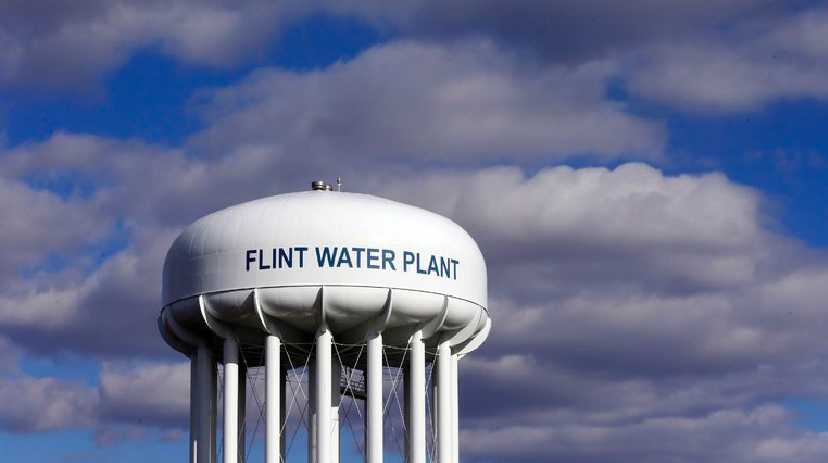
The water in Flint, Michigan became toxic in 2014 after representatives switched water sources to save money.
On April 8, Michigan announced that it will no longer be distributing free bottled water to the residents of Flint, the town that switched water sources from Lake Huron to Flint River to reduce government expenses in 2014. The switch sparked a series of public-health problems and brought to light several deep-set societal issues. The new acidic water leached lead from old pipes, poisoning people. It brought E. coli, and treating it with chlorine created a dangerous carcinogen byproduct. A deadly outbreak of Legionnaires’ disease that killed ten people was also traced back to the water. Despite the disastrous effects of the switch, the government still continues to display a lack of competence and accountability with regard to the Flint water crisis.
In an act of gross negligence, Flint officials failed to inspect the safety of the new water source before the switch went into full effect. Complaints about water quality were dismissed, even after detection of E. coli in tap water prompted a temporary boil-water notice. Only once LeeAnne Walters, one of the individuals credited with “whistleblowing” the Flint water crisis, and her four children’s tap water was tested (and found to contain around seven times the amount of acceptable lead) did awareness of the issue take hold. Based on this data and pressure from the EPA, the Flint City Council attempted to authorize a switch back to the water used previously, but the movement was vetoed by former Flint Emergency Manager Jerry Ambrose, the man in charge of the switch between water sources.
The importance of human life far outweighs the propensity to save money. Throughout the process of the water switch, Flint’s government officials have failed again and again to consider the wellbeing and basic human needs of Flint residents. In the years after the water crisis began, the individuals responsible for the situation were called to stand before the court of law. Currently, seventeen people are facing charges, from willful neglect of duty to conspiracy to involuntary manslaughter. One person notably missing from the list is Rick Snyder, Governor of Michigan and arguably the disaster’s instigator. It was his decision to switch Flint’s water source, and he may have been involved in the suppression of information on the crisis in the following years.
It is the government’s responsibility to make matters right in Flint, starting with the water. Replacement of old lead pipes must continue, and bottled water must be distributed. Undoubtedly, the financial burden will be costly, but it is a small price to pay to ensure the health of a city of nearly 100,000 people. The government officials who were responsible for the water switch and for ensuring that the water would remain safe for the residents of Flint must be held accountable; the world should be watching as they are put on trial. For those who are not prosecuted, Mr. Snyder, in particular, they must take responsibility in some way for the needless loss of life and sickness they caused.
Flint’s story is a cautionary tale of the power that elected officials have over the lives of their residents and the responsibility that they bear in keeping the people’s best interests in mind. Without proper accountability, it is all too easy for the careless decision of a person in power to change the lives of entire populations. The government must be held accountable for its actions. It is the citizen’s right to ask more of their elected official and push for a response, but it is an elected official’s duty to serve the people, keep them informed, and advocate for their interests.




